
Politics
21:59, 29-Oct-2017
'Viva Espana': Thousands rally in Barcelona for Spanish unity
CGTN
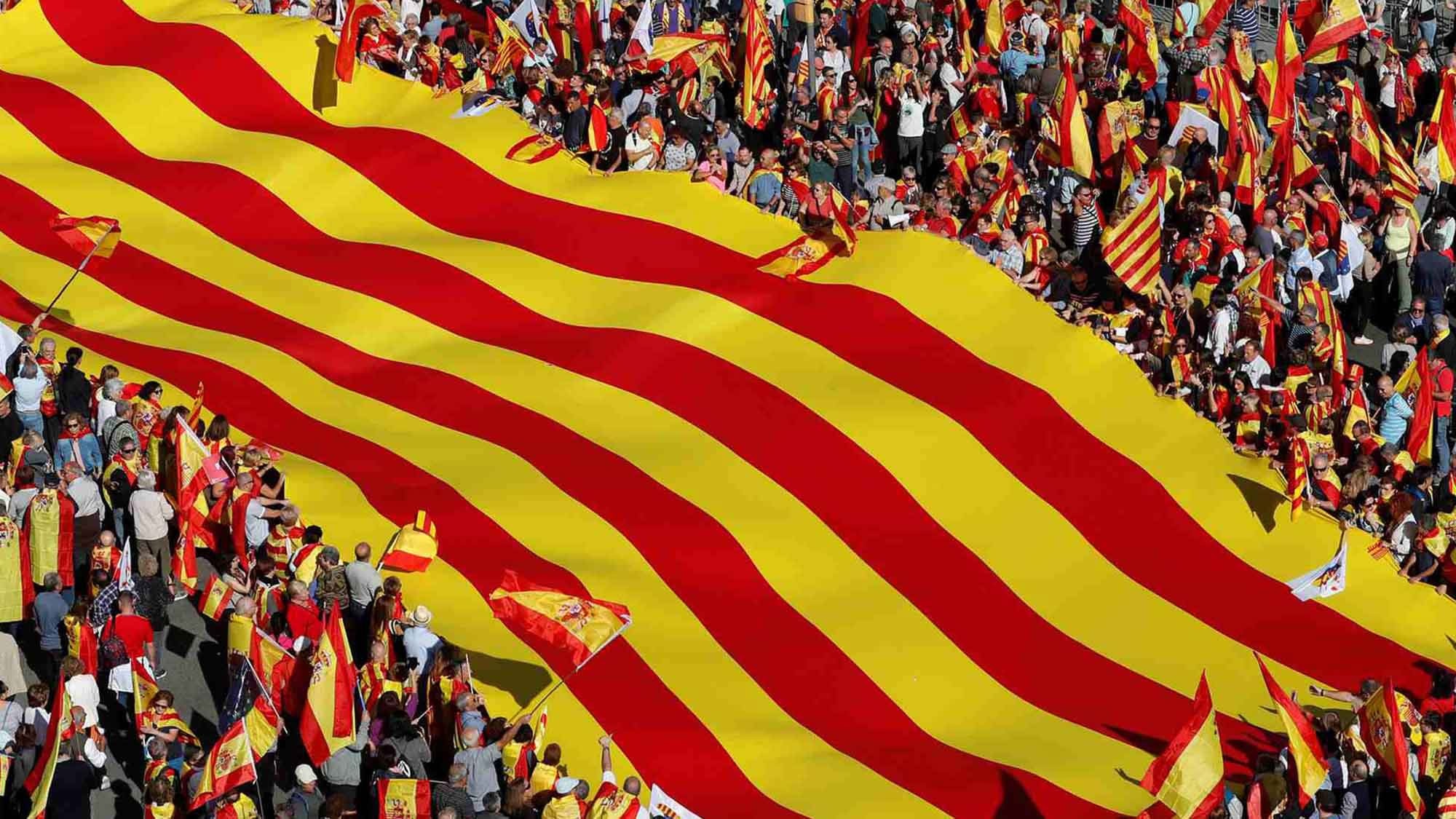
Tens of thousands of protesters have gathered for a rally in central Barcelona to demonstrate their support for continued unity with Spain, two days after Catalonia's parliament unilaterally declared independence.
The protest, under the slogan "We are all Catalonia. Common sense for coexistence!", kicked off at noon local time. People headed towards the Passeig de Gràcia, one of Barcelona’s main thoroughfares, waving Spanish, Catalan and European Union flags.
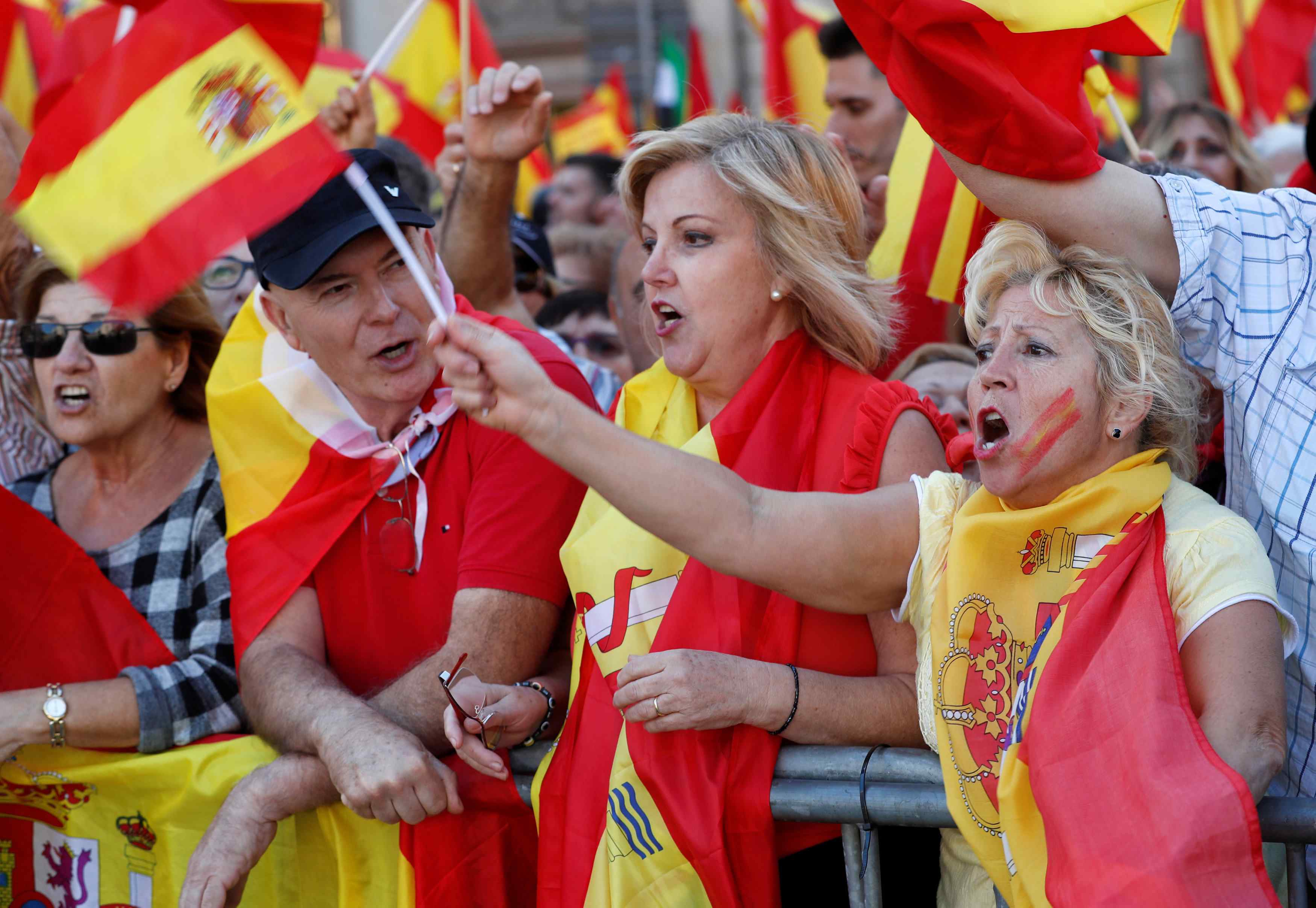
Pro-unity supporters take part in a demonstration in central Barcelona, Spain, October 29, 2017. /Reuters Photo
Pro-unity supporters take part in a demonstration in central Barcelona, Spain, October 29, 2017. /Reuters Photo
"Viva Espana!" cried Sunday's protesters, which means "long live Spain." Some held hand-made signs and banners reading "We won't let Spain to be torn into pieces" and "The awakening of a silenced nation."
Leaders of rival pro-union parties from the ruling conservatives, the pro-business liberals and the socialists have joined in the protest.
According to the rally organizers, the anti-separatist group Sociedad Civil, over one million people turned out for the march while the municipal police estimated the number is 300,000.
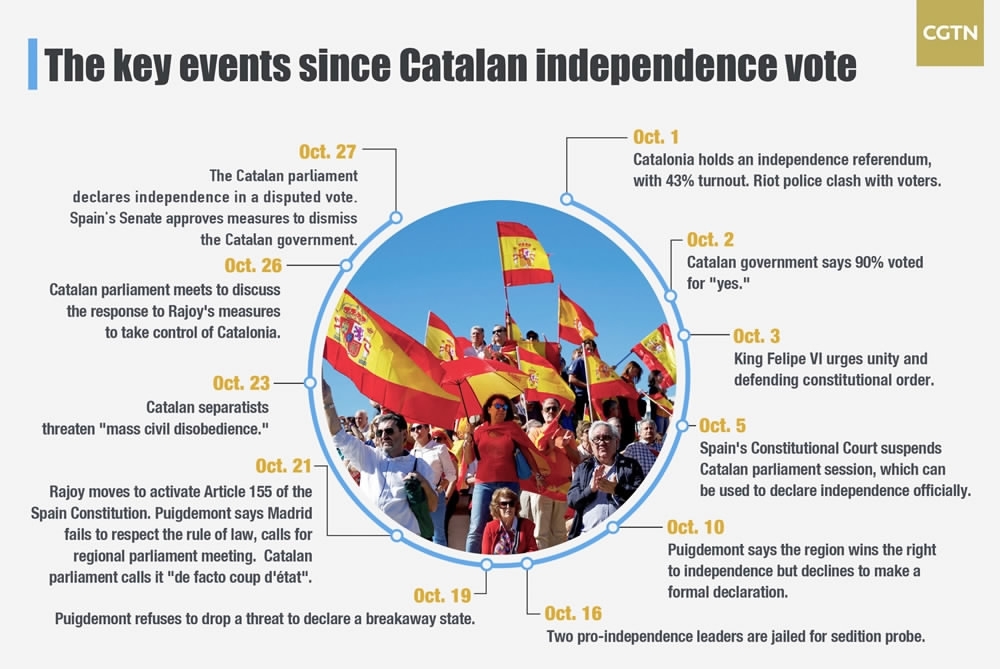
The political crisis was triggered by an independence referendum on October 1, which was marred by violence. Then on Friday Catalan lawmakers declared that the region of 7.5 million people was independent from Spain.
Madrid responded by sacking the regional government and its parliament, and called December 21 elections to replace them. Deputy Prime Minister Soraya Saenz de Santamaria was named to take over administrative control of the region.
On Saturday, Puigdemont called for peaceful "democratic opposition" to the central government's decision.
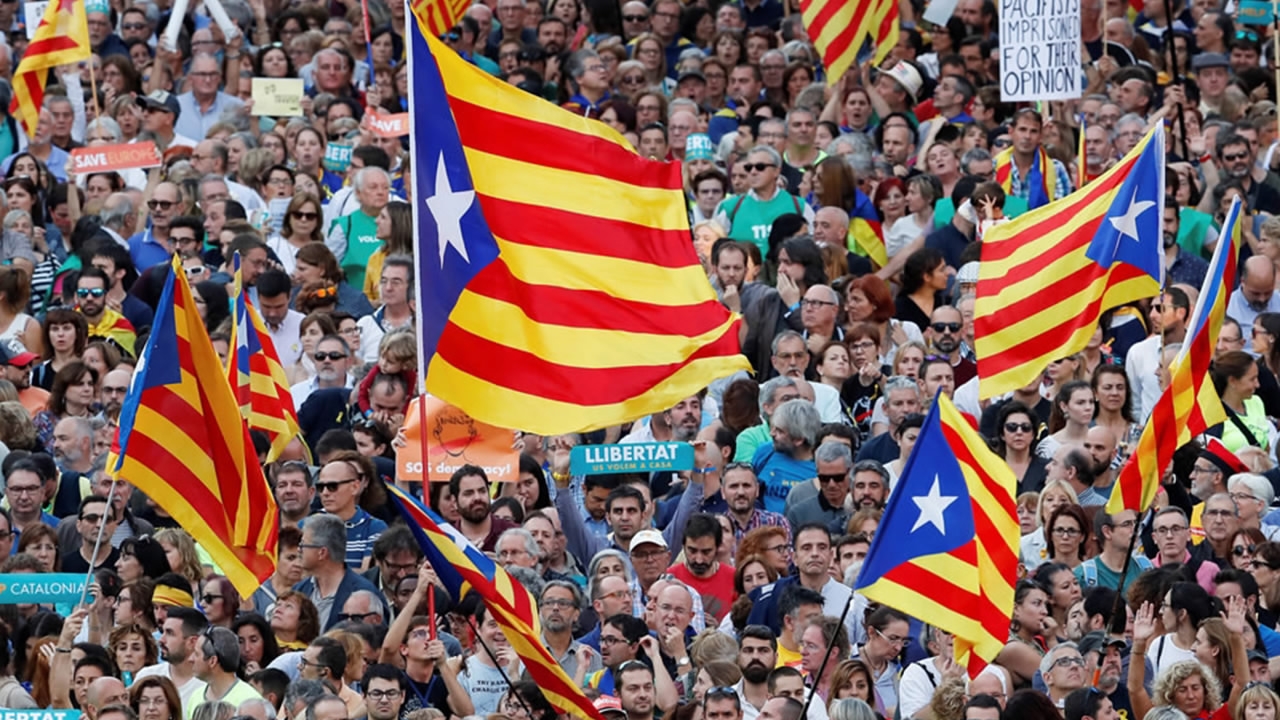
Belgium could offer Catalan leader asylum
Belgian Immigration Minister Theo Francken told Flemish-language broadcaster VTM on Saturday that granting deposed Catalan leader Carles Puigdemont political asylum is a realistic possibility.
"It's not unrealistic [that Belgium could protect Puigdemont], looking at the current situation," Francken said.
"Looking at the repression by Madrid and the jail sentences that are being proposed, the question can be asked whether he still has the chance for an honest court hearing," added the minister.
So far there is no sign that Puidgemont will seek to leave Catalonia, and on Sunday his deputy insisted he "is and will remain" the president of the regional government.
Other pro-independence movements in Europe
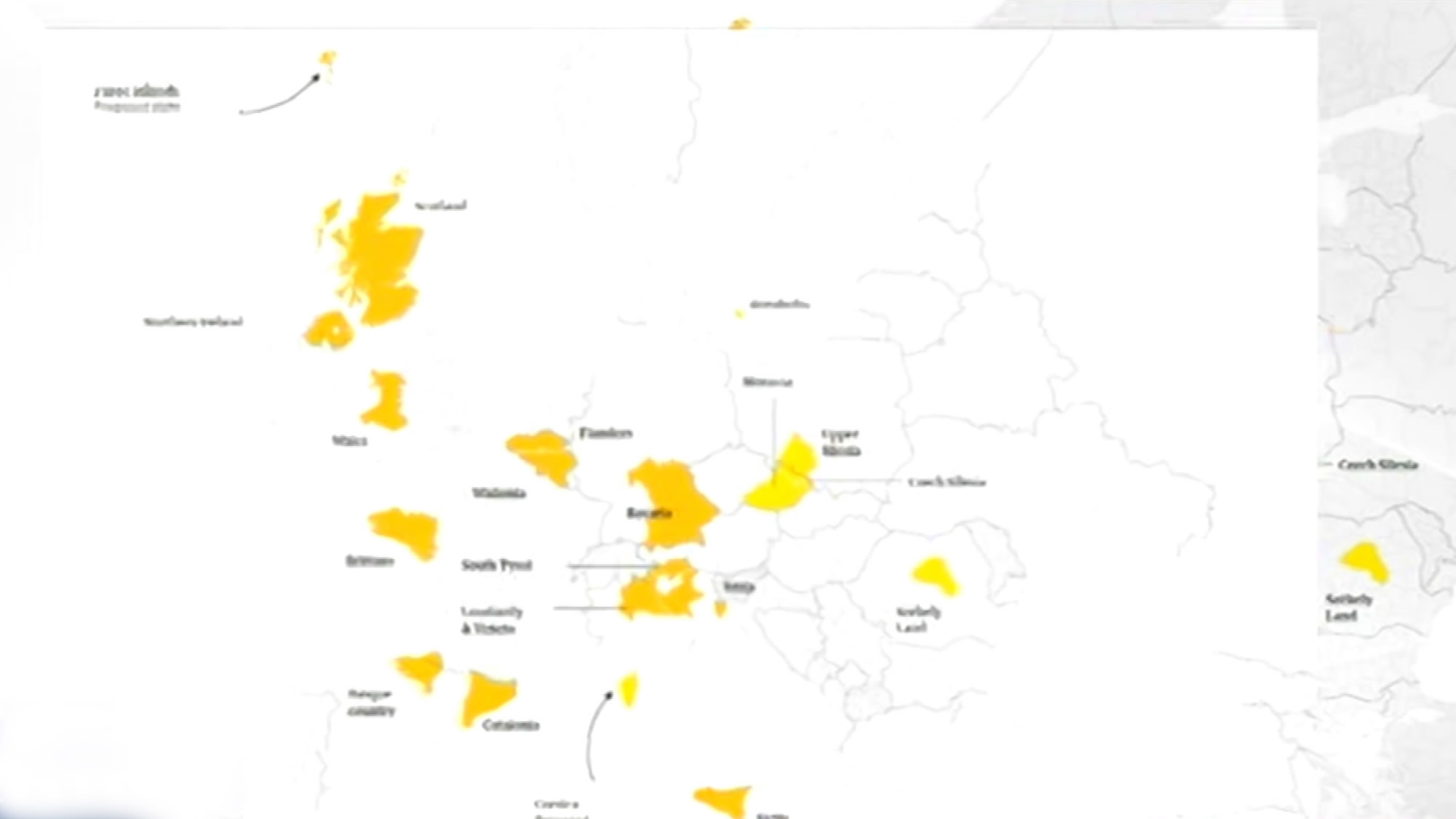
Catalonia is not the only region in Europe looking for independence. Separatist movements in Europe have a long history due to differences in culture and geographic distance.
Just a week ago, two of Italy’s wealthiest northern regions voted in favor of greater autonomy. Turnout was estimated at around 58% in Veneto, a region that includes Venice.
The Faroe Islands have been an autonomous, self-governing country within the Kingdom of Denmark since 1948. It was separated from Denmark after voting narrowly for independence in 1946.
Corsica is an island in the Mediterranean Sea in France. The region has been demanding independence since 1976 with a campaign of bombings and assassinations. But recently it had announced an "end to military operations."
The Flemish Movement seeks greater autonomy in the Belgian region of Flanders. The more prosperous and mainly Dutch-speaking region aims to push for further gradual devolution after the 2019 elections.
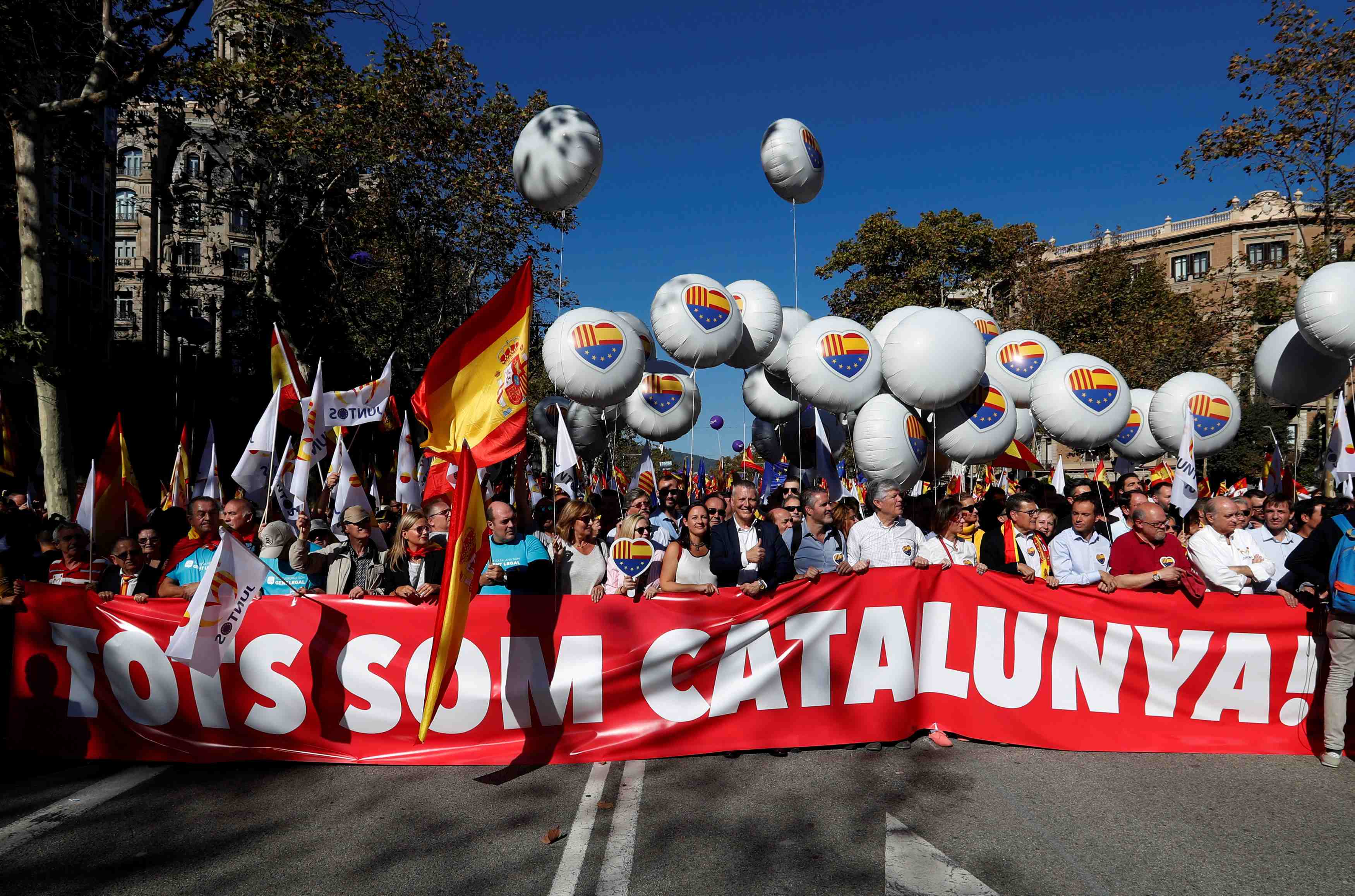
Pro-unity supporters take part in a demonstration in central Barcelona, Spain, October 29, 2017. /Reuters Photo
Pro-unity supporters take part in a demonstration in central Barcelona, Spain, October 29, 2017. /Reuters Photo
A 2017 poll suggested one in three Bavarians favor independence in Germany. Bavarian nationalism has been strong since the state's incorporation into Germany in 1871.
Scotland has had a long-lasting campaign to separate from the UK. More than 84% of Scottish voters cast their ballots in an independence referendum in 2014, with 44.7% voting in favor. Though they ultimately voted to remain, the question has arisen again following the United Kingdom's decision to leave the European Union.
8814km

SITEMAP
Copyright © 2018 CGTN. Beijing ICP prepared NO.16065310-3
Copyright © 2018 CGTN. Beijing ICP prepared NO.16065310-3